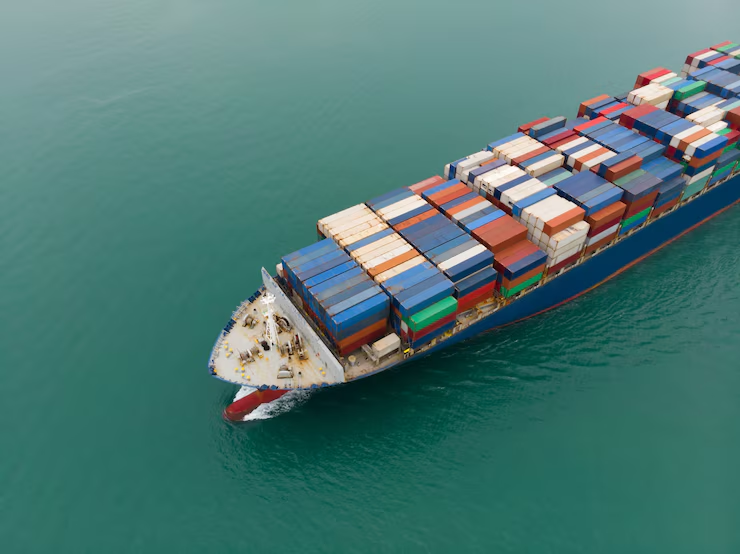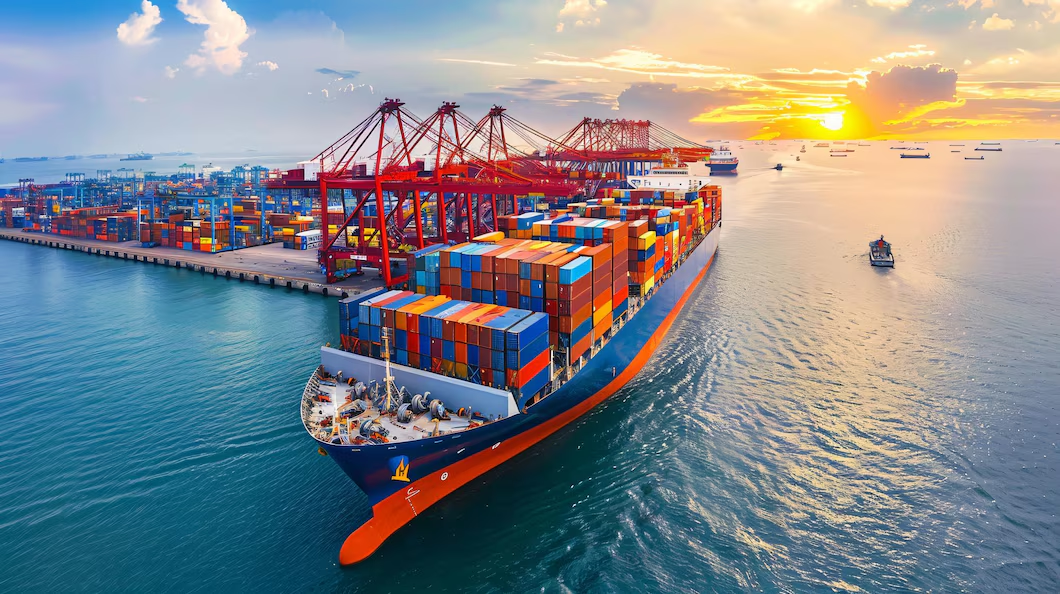Navigating the Future: The Importance of Port Development for International Shipping
25 Sep, 24
International shipping facilitates the transfer of products across countries. It will facilitate international trade and allow firms to reach markets outside their boundaries. It will result in the trade of services and goods locally.
The international shipping industrial sector accounts for more than 90% of global trade. Intercontinental trade, shipping, and bulk transport of raw materials are required for the import and export of produced commodities.
Ports serve as portals for international trade. It serves as the link between land and maritime networks. It promotes the circulation of products across borders. It also allows for smooth import, export, and transit shipments. The importance of port development in international shipping helps to reduce transportation costs. Furthermore, it reduces lead times and increases competitiveness in worldwide markets. Global Shippers Rwanda offers the best international shipping services in the USA.
In this piece, we'll talk about the obstacles of port expansion, the economic impact, technological developments, and environmental concerns
Major Challenges
Major issues for shipping ports include congestion, environmental concerns, and technology demands. Let's talk about them in detail.
Congestion
Ports confront congestion issues, which cause delays in vessel departures and arrivals. The difficulty causes vessels to wait offshore for several days, if not weeks, before offloading cargo. So the issue emerges when the terminal is overloaded. This renders it incapable of accommodating incoming vessels.
Environmental Regulations
Ports are under increased pressure to comply with environmental standards. They under pressure to lessen their environmental impact. They must adhere to tougher emissions requirements, requiring them to invest in greener technologies. These will greatly raise the cost and requirement of altering infrastructure.
Technological demands
The requirement for innovative technologies is growing in order to achieve smooth functioning. It is required for effective connectivity between ports, trains, and roads. However, a lack of inadequate intermodal infrastructure causes delays, congestion, and increased transportation costs.
Security and Safety Concerns
Ports are particularly vulnerable to security assaults and breaches. The attacks may be theft, terrorism, or smuggling. It must provide excellent safety and security for cargo, labourers, crew members, and infrastructure. As a result, they must invest in enhanced security features. Examples include access control, surveillance, and screening systems.
Economic Impact of Port Development
The development makes a substantial contribution to the national and regional economies. It leads to increased work opportunities. It will attract company investment and promote industrial expansion. Job prospects are not confined to port facilities; they are driven by logistics, manufacturing, and transportation.
Shipping lines use the most effective routes to decrease costs and travel times. Expanded port development will improve connectivity across borders and countries. This also necessitates modifying cargo lines and routes properly.
Port development can have a significant impact on both local and global economies. It will cause a ripple effect that will affect various business sectors and stakeholders.
To reduce the environmental impact of ports, consider implementing green technologies.
To reduce emissions and their environmental impact, ports must implement eco-friendly technologies. This involves utilising shore power to provide electricity to docked vessels and cargo handling equipment. The emphasis should shift to investments in renewable energy sources such as solar and wind power.
Focussing on Energy Efficiency
Port operators must prioritise energy-efficient solutions. They should use approaches to reduce energy use. Important steps should be taken to limit greenhouse gas emissions. This must include optimising machinery operations, upgrading lighting systems, and investing in renewable energy. Operators must prioritise energy audits and performance monitoring in order to identify potential for future development.
Environmental Conservation
Port development and growth involve land reclamation and construction activities, which can impact nearby ecosystems. Sustainable development strategies will reduce the environmental implications associated with habitat restoration and soil erosion control. It will also promote the adoption of environmentally friendly materials. Sustainable port development will help to preserve the environment for the long term by protecting biodiversity and natural ecosystems.
Future Trends in Port Development
Future port development trends will include technical advancements, automation, and environmental concerns. There will be significant changes in global trading patterns. Digital twin technology will be used to optimise port architecture and operations. Additionally, the emphasis will be on automation and robotics technology to improve efficiency and safety in terminal operations and cargo handling.
Conclusion
Port development that prioritises sustainability, eco-friendliness, and technical advancement will result in seamless international shipping. It will have a favourable economic impact at both the local and global levels. Get in touch with Global Shippers Rwanda the international shipping company in the USA




